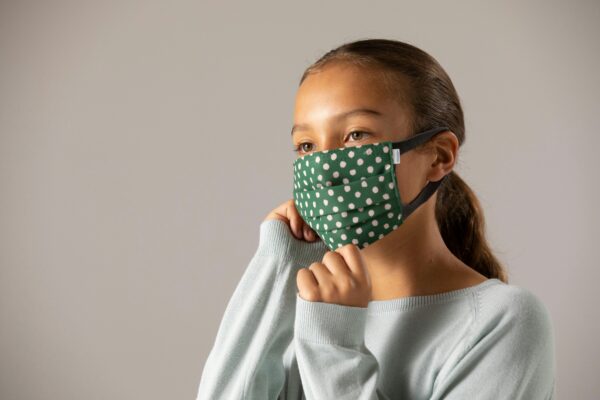Face Masks
Masking Up for Allergies: How Face Masks Can Help
Wearing a face mask has been a central part of the global healthcare conversation, particularly during the COVID-19 pandemic. However, were you aware that this basic protective equipment could also serve as a powerful defence against an entirely separate adversary—seasonal allergies? For allergy sufferers, the notion of a face mask as a shield against pollen may just be a game-changer.
If you find yourself dreading the arrival of spring or autumn due to allergens, it’s time to consider the year-round protection that a face mask might provide.
The Culprit Behind Your Sneezes
Before we can understand how face masks help allergy symptoms, we need to familiarise ourselves with the allergens they protect us from. The typical allergen profile includes airborne pollen from grasses, trees, weeds, and various outdoor moulds. These allergens trigger the release of histamines in the body, causing symptoms such as sneezing, itching, a runny nose, and watery eyes.
Allergy Season and Face Mask Selection
Allergy seasons don’t just coincide with the blooms of different plant species; they can vary by geographical location and climate. Depending on where you live, you might also encounter ‘cedar fever’ in central Texas, or hallmarks of mountain cedar, which cause severe allergic reactions during their peak season. Understanding the specific allergens in your area can help you choose the best face mask for your needs.
Face masks come in various forms, from simple cloth masks to more robust N95 respirators, and each offers a different level of particle filtration. Cloth masks, commonly made of cotton or polyester blends, provide basic protection by capturing larger particles. In contrast, N95 respirators, designed with advanced filtration technology, offer a higher level of protection by filtering out smaller particles, including allergens like pollen and dust. Therefore, the choice of face mask depends on the specific needs and circumstances, with considerations such as comfort, breathability, and filtration efficiency playing significant roles.

The Science Behind Mask Effectiveness
Research has shown that masks can indeed help manage allergy symptoms. A 2010 study published in the “Annals of Allergy, Asthma & Immunology” demonstrated that participants who wore a mask while outdoors reported fewer symptoms than those who did not. Masks effectively act as a physical barrier that prevents the entry of allergens into your respiratory system, offering a reduction in symptom severity for many wearers.
Masking Etiquette for Allergy Management
Proper mask use is critical to reaping the allergy-relieving benefits. For outdoor activities, it’s recommended to wear a mask that fits snugly over your nose and mouth. This ensures that the majority of the inhaled air passes through the mask’s filter, offering maximum protection.
Maintaining your mask is crucial, too. Regular cleaning and replacement of disposable masks can prevent the accumulation of allergens on the surface of the mask. Consider using a mask liner to further reduce the risk of retaining pollen.
When and Where to Mask Up
Timing is everything when it comes to managing allergies with a mask. Wear your mask on days when pollen counts are high, during outdoor chores like mowing the lawn, and in crowded public outdoor spaces where allergen concentrations may be elevated.
Beyond Allergies: Additional Benefits of Mask Wearing
While the focus of this post is on allergy management, it’s important to note that the benefits of wearing a mask extend beyond just allergies. Masks can also offer protection against dust, pet dander, and pollution, all of which can exacerbate allergy symptoms or lead to respiratory issues in their own right.

Combining Strategies for Effective Allergy Relief
While masks provide a valuable line of defence against airborne allergens, they shouldn’t be the only tool in your kit. Combining mask use with other strategies such as staying indoors during peak pollen times, keeping windows closed, and using air purifiers can create a comprehensive approach to managing allergies.
For severe allergy sufferers, it may be necessary to consult with a healthcare professional about prescription allergy medications or immunotherapy. However, for many people, incorporating a mask into their daily routine during allergy season can make a noticeable difference in their quality of life.
The Path Forward: Masks and Allergy Management
The use of face masks for allergy management is an evolving area of study, but the evidence to date suggests that for many, masks can offer a meaningful reduction in allergy symptoms. By educating yourself about the benefits of mask wearing, selecting the right mask for your needs, and using it correctly, you can look forward to allergy seasons with a renewed sense of confidence and comfort.
Mask on, allergies off. It’s worth a try.

